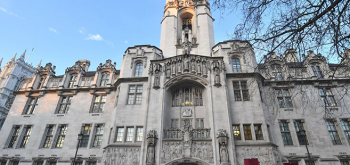Legal publisher LexisNexis asked their lawyers to nominate 10 ‘landmark’ legal cases that have taken place during HM’s reign, apparently to celebrate the Queen’s Diamond Jubilee.
Their imaginative team came up with a somewhat eclectic collection of cases covering consensual masochistic sex involving genital abuse (with hot wax, sandpaper, fish hooks and needles etc) in R v Brown; treason in form of the notorious Spycatcher case; plus the accountant convicted of ‘menace’ after making a Twitter joke about blowing Robin Hood Airport ‘sky high’. The lawyers also threw in jaffa cakes and tax avoidance for good measure.
Their list included:
- R v Penguin Books Ltd [1961] Crim LR 176 (Lady Chatterley’s Lover obscene publications prosecution). First major test of the then new Obscene Publications Act 1959. See HERE.
- Van Duyn v Home Office [1974] 3 All ER 178: The first reference to the European Court of Justice by an English court. As Wikipedia suggests, this isn’t a particularly exciting case on its facts but massively important for what it represents. Clearly for much of the 1960s and 1970s whether the UK should join the European Economic Community (as it then was), was a huge political issue. Arguments about the degree to which sovereignty has been ceded by the UK to Europe continue to have resonance today, particularly with the Euro crisis. As the first European case, this marks the recognition by the legal system that no longer was UK law supreme.
- Eves v Eves [1975] EWCA Civ 3 (Lord Denning creates law of creative trusts out of thin air). Many lawyers would be willing to argue that Lord Denning was the most prominent judge of the post-war era. This case is arguably one of the most notorious of many examples where he appeared to be making judicial law – his creative use of constructive trusts enabled him to get round many problems with the facts and other matrimonial and property laws that seemed to prevent a common law wife from claiming a proprietary right over a shared home.
- W T Ramsay Ltd v IRC [1981] STC 174. The end of the beginning of a revolution in attitudes towards (unacceptable) tax avoidance.
- Miller v Jackson [1977] QB 266 (Lord Denning waxes lyrical about the joys of cricket – an occasional ball hit out of a ground is not negligence or nuisance). Again, a favourite for many Denning fans and often quoted as an example of a common sense and ‘English fair play’ attitude and approach by the judiciary that prevents the UK from developing a US-style litigation culture. The Millers complained that they were inconvenienced by cricket balls being hit into their new 1972 house, adjacent to a cricket ground that had been in existence since 1905 – they lost their case at the Court of Appeal. Read more HERE.
- Attorney General v Observer Ltd, Attorney General v Guardian Ltd (No 2) [1990] 1 AC 109 (Spycatcher). The Law Lords unanimously dismissed the government’s attempts to ban publication of Peter Wright’s memoirs, Spycatcher in an attempt to stop reporting allegations of misconduct by the security service. See HERE.
- The Jaffa Cake case [1991](United Biscuits (UK) Ltd, VAT decision 6344) – The judgment defined the difference between a cake and a biscuit and accordingly announced that a Jaffa Cake is a cake and that therefore VAT was, and still is, not charged on the sale of Jaffa Cakes
- R v Brown [1993] 2 All ER 75 (every law student’s favourite BDSM case). For the eye-watering facts, see HERE. It is an important case for discussing what the role of the law is – should the law be intervening in the private, consensual acts of citizens that affect no others? Back to basic discussions of natural law, Hart, John Stuart Mill etc etc.
- R v Paul Chambers [2010] – unreported, Doncaster Magistrates Court, 10 May 2010. The prosecution of Paul Chambers for sending a ‘menacing’ tweet relating to Robin Hood Airport, the ‘Twitter joke trial’ continues to be appealed at the time of going to press.






